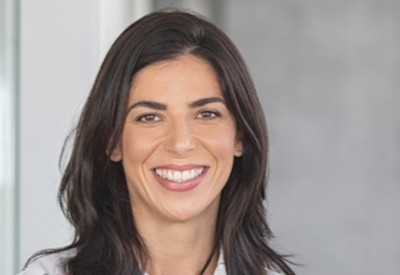Navigating HNW Family Dynamics: It’s Time for Advisors to Get Personal

There's a common expression related to high-net-worth (HNW) families: "Shirtsleeves to shirtsleeves in three generations." Wealth is created in the first generation, protected in the second, and spent in the third. Some studies have suggested that only about 10 percent of wealthy families successfully preserve their fortunes beyond that point.
Whether true or not, poor communication between the head of the family and younger generations can result in a loss of wealth over time; this can be especially problematic in the estate planning process. But communication with trusted advisors comes into play here as well. According to Accenture’s Wealth Management Consumer Report, nearly 90 percent of HNW investors surveyed said the communication they get from their advisors is “too generic.”
These findings equal opportunities for financial advisors. If you can combine an understanding of the strategies and product solutions these clients need with a personalized approach for navigating HNW family dynamics, you'll be well-positioned to help wealthy families successfully transfer assets to heirs and preserve their legacy for generations to come. Here are some tactics to consider.
Getting to Know Your Client: What Makes Them Tick?
To provide that personalized approach, you need to know more about the motivations, biases, and other traits your clients bring into their relationship with you.
How your clients achieved their wealth will inform the guidance you provide. Did they build a business and sell it for a substantial sum? They may need help adjusting to newfound wealth. Did they inherit their wealth? They may need your help maintaining it and passing it to the next generation. Has their family always been wealthy? They may appreciate creative solutions for expanding their charitable interests.
Generational demographics are another element to consider. Millennial and Gen X millionaires will likely feel differently about money and investing than members of the Baby Boom generation. And all the things you’ve heard about younger investors—their comfort level with technology, their focus on values-based investing, and their risk profiles—will add another layer to the process.
Other questions that will help you get to know your HNW clients more intimately include:
- –Where did you grow up, and what was it like?
- –What money messages did you learn growing up?
- –Was there a key turning point in your life that changed your feelings about wealth or success?
- –What money messages have you passed on (or do you intend to pass on) to your children?
- –What else would you want future generations in your family to know about your past and your goals?
☆ Pro tip:Use the information you learn about existing clients to build a set of HNW client personas to help you target more of these ideal clients. |
Uncovering Values: The Family Mission Statement
The last question can help you segue from individual to family values. "Sometimes as an advisor, you're addressing the immediate concerns and coming up with planning ideas [for] the primary client," said Seth Renaud, ChFC®, AIF®, president of C.I.G. Private Wealth Management. "As your planning discussions open up and develop, you realize some concerns, realized or unrealized, go beyond their lifetimes and extend to the family."
While estate planning outlines which assets will be passed on, legacy planning is a more holistic approach that considers the knowledge, traditions, philanthropic goals, and investing philosophies that an HNW family wants to impart to future generations. Think of it as the family's mission statement.
To help your clients give voice to these intentions, you’ll want to continue asking probing questions like these:
- –What’s important in your daily life?
- –What values do you cherish? What values do you want your children, grandchildren, and future generations to carry forward?
- –Are there particular organizations or charities that are important to you?
- –How do you want your family to be remembered?
This process isn't about the money, at least not initially; it's about what the family stands for. Encourage all family members to take part in this discussion and then work to find common themes to include in a shared mission statement.
Bringing Everyone Together: The Family Meeting
One of the best ways to help families talk about their values is to introduce the family meeting. The benefits are two-fold:
1. You set yourself up as the trusted advisor for the entire family.
2. You get early access to the next generation.
Here’s how you might approach the family meeting:
Do your homework. With multiple generations and personalities potentially involved, your ability to navigate HNW family dynamics will be critical. As you prep for the first meeting, work with the matriarch and patriarch of the family to understand what they’re comfortable sharing. It may make sense to focus on goals and talk in general about how assets may flow to the next generation, saving specific dollar amounts for a later discussion.
Renaud has been working with one HNW couple who will ultimately pass on substantial assets to their heirs, each of whom will likely experience different challenges adjusting to that sudden wealth. From his study of the family dynamics portion of the Certified Private Wealth Advisor® (CPWA®) program, Renaud knew a family meeting might be a useful strategy for these clients. "It was a foreign concept to them," he said, but it helped them "identify the specifics and the reality of" their heirs inheriting that much money.
Figure out the guest list. Will it just be immediate family members? Should spouses or children attend? Remember: It’s never too early to start talking about estate plans with heirs.
Decide on the venue. Choose a location that will allow everyone to feel comfortable talking. This could be an informal setting, like the family home, or a more traditional setting, like your office or boardroom.
While the goal might be to have everyone attend the meeting in person, that may not be possible. So, you’ll need to incorporate family members into the meeting via videoconference, which could make your office the best setting.
☆ Pro tip:Agree on the “rules of engagement” for the meeting. For example:
|
Plan for challenges. Be aware (or beware?) of family dynamics and potential dysfunctions that may play a role in meetings. Remember, Renaud said, "High-net-worth people are just people. Yes, they have financial complexities, but their family complexities are common amongst all people." For example, if there's sibling rivalry involved—or a situation where one child is involved in the business and another is not—you'll need a plan for navigating your way through those issues.
Educate. The role of the advisor in the family meeting is to lead and educate. A sample agenda might include a discussion of the family’s wealth and values, estate planning documents, the family’s charitable intent and its role in the estate plan, and eldercare decisions.
As you guide family members through the agenda, be prepared to explain terminology and answer questions. For example, be ready to address the rationale behind decisions if assets aren’t distributed equally, if trusts have additional protection provisions for certain participants, or why assets are held in trust versus distributed outright. You may also need to explain the role of taxes in estate planning and how it has affected decisions.
☆ Pro tip:Distribute a glossary of terms or similar explainers on what estate documents like trusts, wills, and powers of attorney are intended to achieve. |
Educate some more. In that vein, identify all the players in the estate plan and their roles. Who are the trustees and powers of attorney? Are there other financial advisors, estate planning attorneys, and CPAs who are party to the plan? As you move from high-level discussions to more granular ones about how a plan will execute, this information will be increasingly important for the family to know.
Rinse and repeat. The family meeting isn’t a one-and-done event. Establish a regular cadence to reinforce education and awareness within the family. You could also set up individual meetings with participants, before or after group sessions, to allow them to ask questions and speak more freely.
Ready to Get Personal?
Relationships can only grow and flourish with good communication. And good communication requires knowing your clients’ needs intimately, so you can provide the most personalized recommendations and solutions for their unique situations. Family meetings can "deepen the relationship and create continuity of family clients . . . and it's what the client really wants," Renaud said.
So, how do you help clients pass assets to the next generation and create a legacy for the benefit of future generations? Get ready to get personal!
Please consult your firm's compliance policies prior to moving forward with a new designation/certification program.

FREE DOWNLOAD
Advanced Financial Planning Strategies for High-Net-Worth Clients
Explore creative, comprehensive financial planning solutions—from asset protection to charitable giving—for your high-net-worth clients' unique needs.
This material is for educational purposes only and is not intended to provide specific advice.
Please review our Terms of Use.






